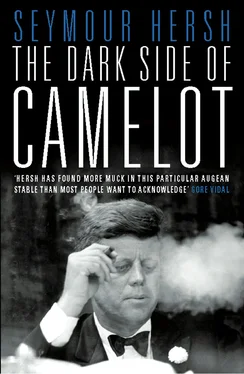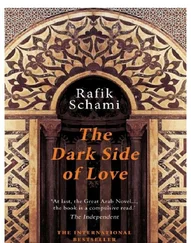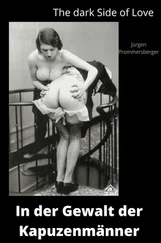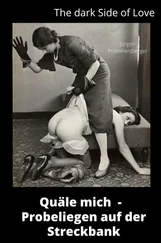The president and his aides understood the cynicism of Joe Kennedy’s friendship with Jimmy, but made no attempt to intervene. Kennedy’s influence on the president’s son remained enormous. Kennedy was rich and attractive to women, and the young Roosevelt wanted to be both. The two collaborated on business deals and vague promises of partnerships. Roosevelt, trading on his father’s fame, was working as an insurance broker, and at Prohibition’s end, Kennedy allowed him to write policies on overseas liquor shipments. There were always women. While ambassador to England, Kennedy told an embassy aide that Jimmy Roosevelt was “so crazy for women he would screw a snake going uphill.”
In 1935, with Kennedy’s help, Roosevelt was named president of the National Grain Yeast Corporation of Belleville, New Jersey, one of many companies that found themselves doing big business after the repeal of Prohibition. Yeast, of course, was essential for the mass production of beer, and it became one of the legitimate businesses that attracted former bootleggers. Roosevelt failed at the job and was out of work within six months.
James Roosevelt’s business disappointments no doubt figured in his father’s decision, despite opposition from his advisers, to name him his personal secretary at the beginning of his second term. Kennedy, not surprisingly, continued to lavish attention, affection, and, undoubtedly, women on the president’s son. “You know as far as I am concerned,” Kennedy wrote Roosevelt and his wife in a January 1937 letter on file in the FDR Library, “you are young people and struggling to get along and I am your foster-father.”
Foster father was hyperbole, but James Roosevelt, as personal secretary to his father, played a major—and not fully known—role in assuring Kennedy’s nomination as ambassador to England. The most extensive account of the machinations appeared in Memoirs , Arthur Krock’s autobiography, published in 1968. Krock, then the columnist and Washington bureau chief of the New York Times , had a secret life. By the late 1930s he had become another of Kennedy’s wholly owned subsidiaries—a journalist who vacationed at Kennedy’s Florida home, shared in his lifestyle, and very often wrote whatever Kennedy wanted. It was a pattern that would be repeated again and again by the reporters covering Joe and, later, Jack Kennedy. In his autobiography, Krock told of a dinner with Kennedy, then chairman of the Maritime Commission, at which James Roosevelt arrived and took Kennedy into another room for an extended private conversation. Kennedy’s nomination as ambassador was rumored at the time, and, Krock noted, there was sharp opposition inside the White House and from liberals in the Congress. After the meeting, a very angry Kennedy told Krock that young Roosevelt had proposed that he take an appointment as secretary of commerce. “Well, I’m not going to,” Kennedy said. “FDR promised me London, and I told Jimmy to tell his father that’s the job, and the only one, I’ll accept.”
Kennedy got his nomination in December 1937 and arrived in prewar London full of ambition.
Kennedy’s rise and fall as ambassador in London has been often told: a brief honeymoon with the British press and public, much of it revolving around his highly social and photogenic children, and then a relentless fall from grace. Kennedy was reviled for his defeatism. His widely quoted belief was that Great Britain had neither the will nor the armaments to win a war against Nazi Germany. And he was ridiculed for his perceived cowardice during the intensified Luftwaffe bombing of London in 1940, when he chose to spend his nights at a country estate well away from the targeted city centers. German Foreign Ministry documents published after World War II show that Kennedy, without State Department approval, repeatedly sought a personal meeting with Hitler on the eve of the Nazi blitzkrieg, “to bring about a better understanding between the United States and Germany.” His goal was to find a means to keep America out of a war that he was convinced would destroy capitalism.
There is no evidence that Ambassador Kennedy understood in the days before the war that stopping Hitler was a moral imperative. “Individual Jews are all right, Harvey,” Kennedy told Harvey Klemmer, one of his few trusted aides in the American Embassy, “but as a race they stink. They spoil everything they touch. Look what they did to the movies.” Klemmer, in an interview many years later made available for this book, recalled that Kennedy and his “entourage” generally referred to Jews as “kikes or sheenies.”
Kennedy and his family would later emphatically deny allegations of anti-Semitism stemming from his years as ambassador, but the German diplomatic documents show that Kennedy consistently minimized the Jewish issue in his four-month attempt in the summer and fall of 1938 to obtain an audience with Hitler. On June 13, as the Nazi regime was systematically segregating Jews from German society, Kennedy advised Herbert von Dirksen, the German ambassador in London, as Dirksen reported to Berlin, that “it was not so much the fact that we wanted to get rid of the Jews that was so harmful to us, but rather the loud clamor with which we accompanied this purpose. He himself understood our Jewish policy completely.” On October 13, 1938, a few weeks before Kristallnacht , with its Brown Shirt terror attacks on synagogues and Jewish businesses, Kennedy met again with Ambassador Dirksen, who subsequently informed his superiors that “today, too, as during former conversations, Kennedy mentioned that very strong anti-Semitic feelings existed in the United States and that a large portion of the population had an understanding of the German attitude toward the Jews.” *
Kennedy knew little about the culture and history of Europe before his appointment as ambassador and made no effort to educate himself once in London. He made constant misjudgments. In the summer of 1938, for example, he blithely assured the president in a letter, described in the published diaries of Harold Ickes, FDR’s secretary of the interior, that “he does not regard the European situation as so critical.” Diplomats serving on the American Desk in the British Foreign Office quickly came to fear—and hate—Kennedy. They compiled a secret dossier on him, known as the “Kennediana” file, which would not be declassified until after the war. In those pages Sir Robert Vansittart, undersecretary of the Foreign Office, scrawled, as war was spreading throughout Europe in early 1940: “Mr. Kennedy is a very foul specimen of a double-crosser and defeatist. He thinks of nothing but his own pocket. I hope that this war will at least see the elimination of his type.”
The Foreign Office notes also included many allegations of Kennedy’s profiteering once the war began. Kennedy, still very much in control of Somerset Importers, was suspected of having commandeered valued transatlantic cargo space for the continued importation of British scotch and gin; it was further believed that he was abusing his position of trust as a high-level government insider to support his Wall Street trading. No proof of such business activity was then available to the British Foreign Office—officially, at least—but Kennedy was worried that he might be doing something illegal: in April 1941, shortly after his return to the United States, he telephoned the State Department and inquired whether there were rules governing private financial transactions of U.S. officials serving abroad. Kennedy was told that Congress had passed legislation in 1915 making any business dealings for profit illegal.
In 1992 Harvey Klemmer, an ex-newspaperman who served as Joe Kennedy’s personal public relations aide at the Maritime Commission and had the same role in London, acknowledged in a British television interview that the Foreign Office suspicions more than fifty years before were valid: Kennedy, in fact, did continue to be a major investor and speculator on Wall Street, placing buy and sell orders by telephone through John J. Burns, a former justice of the Massachusetts State Supreme Court who was retained by Kennedy to run his New York office, a practice he continued into the 1950s. Klemmer, depicted by one British diplomatic reporter as Kennedy’s “brains trust,” remained silent about Joe Kennedy until a few months before his death, from cancer, in 1992, when he did a brief on-air interview with television producer Phillip Whitehead on Thames TV. Klemmer, who was severely disfigured from his cancer, also granted Whitehead an extraordinary interview on audiotape—much of it never made public until it was obtained for this book. The unedited transcripts of the two interviews provide a rare inside look at the Kennedy embassy. “Kennedy continued to do business as usual while in London,” Klemmer told Whitehead. One night, while out at dinner, the ambassador left the table for a telephone call. “He was gone a long time. When he came back, he said, ‘Well, the market’s going to hell. I told Johnny [Burns] to sell everything.’” Also at the dinner, Klemmer recalled, was “a Jewish friend of his and mine.… In a little while [the friend] began to fidget and finally excused himself on the basis that he had something important to do and left. As soon as he had left, Kennedy said, ‘Watch the son of a bitch go out and sell. Actually the market is doing very well and I told Johnny to buy.’”
Читать дальше












